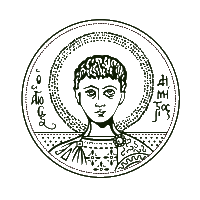SEARCHING AUTh RESOURCES - CITATION INDEXES
A citation index is an index of journal articles in which works cited during a specific year are listed alphabetically by author followed by the names of authors who cite them. Citation indexes allow us to determine whether a particular article or author has been cited by other scholars.
USE
A citation index lists papers cited alphabetically by author. The title of the article appears under the author's name; beneath each article is
a list of those who have cited the author's work.
Citation indexes are useful tools for locating bibliography when we search using:
- a specific article as a key to our research
- a much cited author's name
While searching the citation indexes you can use a specific article as if it were a subject term so as to retrieve more recent articles on the same topic. For example, you can find all works that make reference to an article published by Christopher R. Smit in 2000 in the Journal of Popular Culture. This type of searching often locates relevant articles that cannot be retrieved through traditional subject-author searching.
Researchers can use this tool to trace interconnections among authors citing papers on the same topic, and to determine the frequency with which a specific work is cited, an indication of its importance in the literature of the field.
SEARCH
Searching citation indexes
Suppose that we have a relatively old article on the topic we are interested in and we want to locate recently published papers about it. We can then use
a citation index to find that work under the name of the author followed by the names of the authors who have cited it. Similarly, suppose that we have
the name of an author known to have published material on our subject. If that author's work has been cited by other authors, his/her name will appear
alphabetically in the citation index; the authors citing that author's work will be listed under his/her name.
Options for searching citation indexes
Easy Search:
- Search by topic
- Search by person
- articles that this person has authored
- articles that cite this person's work
- articles that are about this person
- Search by place [ This is to retrieve the most recent articles published by researchers working in a particular institutional place (college, university, company, etc.) or geographical place (country, city, postal code etc.) ]
Full Search:
- Search for articles by subject term, author name, journal title, or author affiliation.
- Search for articles that cite an author or work.
USEFULNESS
"The main characteristic of a citation index is that while you only search by author or by title, you can still retrieve articles relevant to your topic.
Nevertheless, the importance of these indexes is not limited to subject search. It also deals with the tracing of the history of a scientific idea,
the study of the exchange of information. It also expands to drawing conclusions and gathering statistic data about the articles and their authors,
as producers of ideas and information. This is because the number of citations of a particular paper reflects the value and importance of the ideas
it contains.
The citation indexes also provide information about the relations between different sciences. The interaction of sciences is one of the major characteristics
of our time. If an article in one field of knowledge is often mentioned by experts in other fields, this shows that the ideas expressed in it, may concern
many other sciences. Citation indexes provide speedy recognition of the common ground between different sciences and theories, which is impossible to achieve
in any other way, no matter what the quality of classification systems or the capacity of classifiers really is. In citation indexes, scientists themselves
ascertain the relation between different sciences by making references to a specific article."
[ The text originally appears in Greek in the book by
Alkimini A. Skandali, I Epistimi tis Pliroforisis ke Tekmiriosis (Athina: I.G. Vasileiou, 1990) 69 ]




 Greek version
Greek version